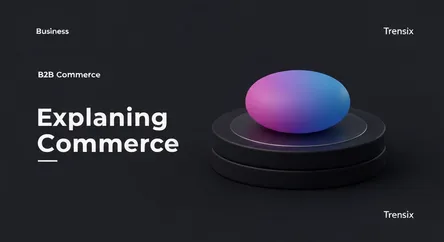Business
Explaining B2B Commerce

Discover the Business-to-Business (B2B) model, where companies sell products and services directly to other businesses rather than consumers.
What is it?
B2B, or Business-to-Business, is a business model where transactions of goods or services occur between two companies rather than between a company and an individual consumer (which is known as B2C). Examples range from a software company selling customer relationship management (CRM) software to a corporation, to a manufacturer providing raw materials to another for production. B2B transactions often involve larger order values, longer sales cycles, and are built on long-term relationships. This model encompasses everything from professional services like consulting and accounting to enterprise software and industrial machinery.
Why is it trending?
The digital transformation has supercharged the B2B space. The rise of Software as a Service (SaaS), cloud computing, and AI-driven analytics allows B2B startups to provide highly specialized, scalable solutions for complex business problems. Niche markets like fintech, cybersecurity, and supply chain logistics are booming with innovative B2B platforms. This trend is also fueled by a move towards data-driven marketing and sales, enabling companies to target and serve their business clients more effectively than ever before, creating massive opportunities for growth and investment.
How does it affect people?
While B2B transactions happen behind the scenes, they directly impact daily life. The efficiency of the software your employer uses, the quality of components in your smartphone, and the logistics that deliver online orders are all powered by B2B companies. For professionals, the B2B sector offers diverse career paths focused on relationship-building and complex problem-solving. Ultimately, a strong B2B ecosystem fuels innovation and efficiency across industries, which can lead to better products, improved services, and lower prices for the end consumer.